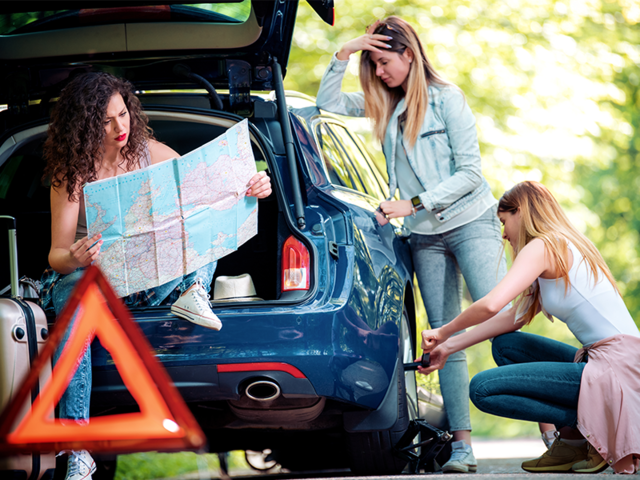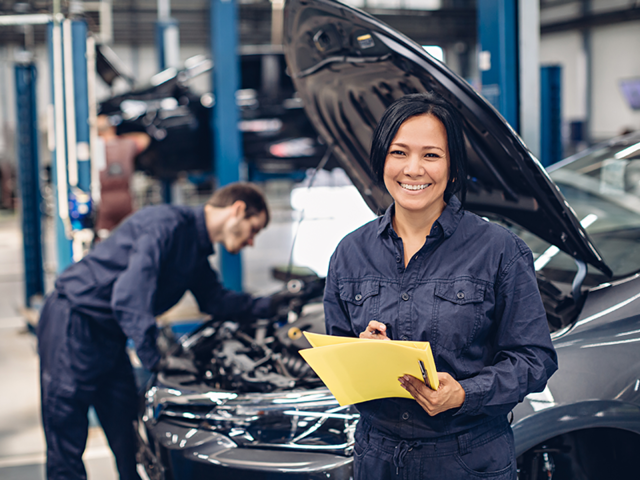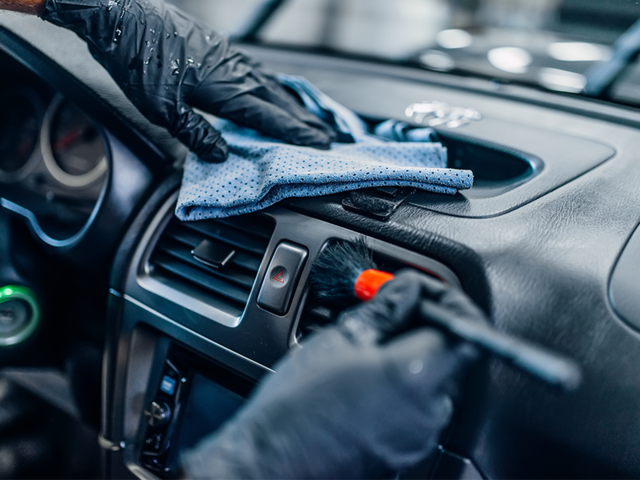Credit can be hard to understand, after all we don’t learn about in school. This confusion is often made worse by common misconceptions you hear from well meaning friends and family. VIDrives is a dedicated team of credit, financing and vehicle specialists that are here to help you understand, navigate and improve your credit– Read on for our guide to the top 6 Credit Myths. Myth #1: Checking...

The Summertime season provides ideal weather for road trips, drive-ins and, unfortunately, car trouble. Why? Extreme heat can take a toll on your car’s most important systems. So, if your summer calendar is filled with travel and trips to the beach, we’re here to help you seize the summer safely.
Making sure you’re a little extra prepared this season can go a long way to protect your vehicle, yourself and your loved ones this summer. Read on as we outline the most common summer car troubles and how to prevent them.
Air Conditioning
Summer heat pairs well with air conditioning, and it might be hard to detect issues during the fall, winter and spring when it’s not in use. When higher temperatures hit, you’ll want a working AC system in your car. Turn on your air conditioning from time to time during the off season to keep it in working order, or at least make sure you test it ahead of the summer season.
If you’re getting hot air when you turn your air conditioning on, a simple fix may be a refrigerant (Freon) charge. Adding refrigerant to your car can give your AC system a boost. If that doesn’t do the trick, a car mechanic should be able to diagnose and treat the problem.
Damaged Interior
The heat of the summer means extreme heat inside your vehicle. These hot temperatures can melt plastics, food and any other garbage that’s left inside your car. To prevent damage to the internal surfaces (and expensive repairs) clean your car, and keep it clean- if you have a sunroof- keep your sunshade closed to shade and prevent more heat on the interior.
Check out our post for the best mess-free road trip snacks for some tips to help you reduce extra drive thru garbage.
Paint Damage
The sun’s rays could damage the exterior and paint of your car (especially if your car has any debris or spills on it) which could be costly to fix- and cause premature rust during wetter seasons or if you’re close to the ocean. Extreme heat could also heat up the interior of your car, like the steering wheel and leather seats, making it difficult to drive. On hot days, try to park your car in the shade whenever possible. Parking your car in a shaded spot not only keeps you cool, but can keep your car cool and prolong its life.
Having window shades, and closing the sunroof in your car is a good idea in case you are unable to park your car in the shade. These shades will block out UV heat, keep the interior of your car from getting hot, and protect from any other damaging effects of the sun.
Worn Wiper Blades
Being able to see is an essential requirement while you’re behind the wheel. In summer, dust and pollen particles, insects or even the sun’s glare can impair your ability to clearly see out of your windshield. Make sure to top up your wiper fluid and check your windshield wipers’ effectiveness to remove anything that could minimize visibility. It’s a good idea to check or replace your windshield wipers at the end of each season.
Additionally, make sure pollen and other particles aren’t covering your light beams. A quick polish or even a wipe down can make a huge difference.
Dirty Air Filters
Your car’s air filters have a very important role, especially in the summer. They keep pollutants from coming in through the vents — which is critical during warmer months because of the high pollen counts and smoke from the forest fires we’re no stranger to in BC.
Not to mention, using an old filter can lead to problems with your air conditioning system.
It’s best to change your air filter every 12 months or 20,000 kilometers, or according to your manufacturer’s recommendations so you can breathe easy- literally, and because you know your Air Conditioning isn’t in danger.
Tire Troubles
Changing temperatures affect your tires in a few ways. First, it’s important to make sure your tires are appropriate for the weather by changing out of your winter tires. Hot weather can also evaporate some of the air in your tires and cause low tire pressure- which causes premature wear and even accident-causing tire blowouts.
Make sure to check your tire pressure and top it up when necessary as that can help your tires last longer and prevent flats, and blowouts.
Engine Overheating
Much like you can overheat in the summer and get heat stroke- you vehicle- and it’s engine can overheat. Just as staying hydrated can help you prevent overheating- making sure your vehicle’s fluids (especially coolant) are topped up can prevent it from overheating.
Once you’ve ensured your vehicle has enough fluids- keep an eye on the temperature via the temperature gauge- if the needle starts to indicate high levels- pull over and wait for the engine to cool down before you continue your drive.
Overheating is a serious issue- so make sure to contact your regular repair shop right away to diagnose and fix the problem.
Get a Summer Ready Vehicle from VIDrives.
Whether you like the beach, camping, hiking, or just long summer drives and road trips- VIDrives wants to help you enjoy your summertime activities without stress about getting stuck in the stranded or broken down. That’s why all of our vehicles are inspected and safe, plus- we work with any budget to make sure you have enough left over to pay for fuel and enjoy your summer!
Other Articles That May Interest You
Here on the Island, we’re lucky enough to (usually) have our winter delayed until around late November, still it’s better to be prepared for the cold weather before you’re caught in a snowstorm. Here are some easy steps that you can take to take care of your vehicle, so it can take care of you this winter. Step 1: Seasonal Maintenance Check Up Vehicle Maintenance isn’t seasonal, but as the...
Getting your car professionally detailed gets pricey fast, but frequent cleaning is an important habit to keep your vehicle in good condition- That’s why many drivers opt for an affordable DIY Detail. Here are some tips, product recommendations and advice to save you some time and money when you’re detailing your car. Find a comfortable workstation Even with the best tools and strategy,...





